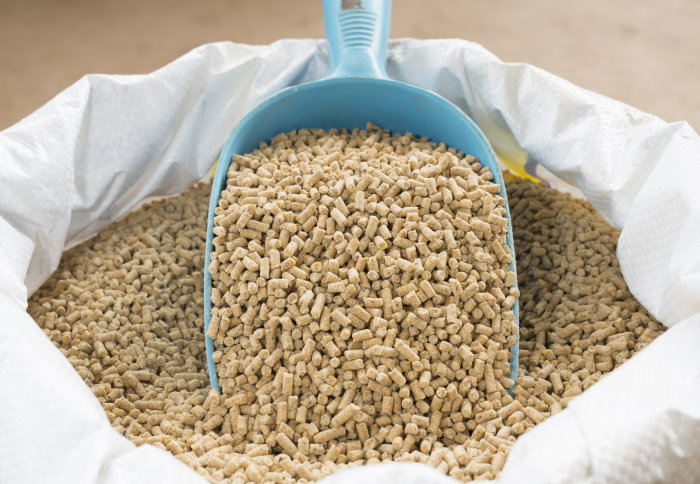Imperial joins with Kaesler to enhance in-house production of feed additives
by Naomi Black

Imperial bioengineers pioneer new synthesis processes with the German animal feeds producer.
Researchers in Imperial’s Department of Bioengineering have joined forces with German animal feeds producer Kaesler Nutrition to kick-start the company’s in-house production of carotenoids.
Carotenoids are naturally-occurring, fat-soluble additives that Kaesler and other feed producers add to their products to improve appearance and nutritional quality. Currently Kaesler buy in and refine these essential additives from other natural sources but are starting to explore ways to produce them completely in-house. However, carotenoids can be difficult to synthesise, with the traditional process producing relatively low yields with high production costs.
We are excited to work with Imperial’s researchers to translate their unique expertise in microorganism engineering into industrially relevant processes. Dr Heiko Dietz Head of R&D, Kaesler Nutrition
In research circles, a microbial-centred approach has shown early success in improving yields. Led by synthetic bioengineer Dr Rodrigo Ledesma-Amaro, a team of Imperial bioengineers will be pioneering a yeast-based approach to apply to Kaesler’s synthesis process, which will expand the company’s current production capabilities. In turn the research lab’s programme will benefit from having direct feedback from consumers and producers and the boost in resources will allow the group to explore novel strategies for production.
The 2-year project is part of a wider programme of academic engagement for Kaesler, who are currently sponsoring complementary research projects with two other German universities.
“This collaboration is a great opportunity for us to increase the speed of execution of this project. We will do this by leveraging complementary expertise between the different working groups. We are excited to work with Imperial’s researchers to translate their unique expertise in microorganism engineering into industrially relevant processes,” said Dr. Heiko Dietz, Head of R&D at Kaesler Nutrition.
Research staff will be based between England and Germany to ensure the teams can work unhindered. An exchange of students and materials will further support knowledge transfer in the partnership.
Collaborating with relevant industry partners, such as Kaesler, is a very rewarding experience. It allows us to close the gap between cutting edge academic achievements and an impact in the real world. Dr Rodrigo Ledesma-Amaro Department of Bioengineering
Dr Ledesma-Amaro’s group has a specific interest in engineering microorganisms. The group uses these microorganisms to produce high-value chemicals, fuels and biomaterials for biomedical and environmental applications. The group is a pioneer in fabricating new molecular processes and developing innovative biomanufacturing tools.
“Collaborating with relevant industry partners, such as Kaesler, is a very rewarding experience,” Dr Ledesma-Amaro commented. “It allows us to close the gap between cutting edge academic achievements and an impact in the real world. We are thus very excited to begin this collaboration with Kaesler Nutrition, which could lead to innovative biotechnological and bioengineering processes.”
If you are an R&D intensive company looking to widen your external engagement or are interested in learning more about our industrial research programmes please contact Dr Rebeca Santamaria-Fernandez, Head of Corporate Partnerships for the Faculty of Engineering, at r.santamaria-fernandez@imperial.ac.uk
Article text (excluding photos or graphics) © Imperial College London.
Photos and graphics subject to third party copyright used with permission or © Imperial College London.
Reporter
Naomi Black
Enterprise